Truth is, I rarely get interested by his anime renditions.
For the sake of completion, though, I decided to include some short reviews on the portraits of Nobunaga from variour recent anime that featured him in a more or less licit way.
Since I noticed a series of "macro genres" for these series, I decided to review all of them together, pointing out differences, strong points and flaws of each series in a concise yet accurate way.
This first post is dedicated to the macro genres of "Time Travellers" and "Genderswitch", as the two themes are usually presented intertwined, and most importantly I don't want to talk too much about them, as two separate posts would be too work, mm'kay?
Ok then, let's try to follow some kind of chronological order, and let's start with the Genderswitch series, or those series where Nobunaga is portrayed as a woman.
Obviously aimed to a male audience and relished with all kind of sexual innuendos and fanservices, the plots of these anime and their general value is blatantly low, but some traits can be quite entertaining.
First on this list is the series "Sengoku Otome: Momoiro Paradox" (released in the USA as "Battle Girls").
It started its airing on April 2011 as an anime, but its "origin" is that of the pachinko game "Sengoku Otome" of 2009, followed by a manga version ("Sengoku Otome: Hyakka Ryōran") on the same year.
This series feature both generes, as the protagonist, the modern-day student Hide Yoshino, gloriously nicknamed "Hideyoshi", found herself transported in the Japan of Sengoku era, where she got to meet Nobunaga, in a female version, with her crew.
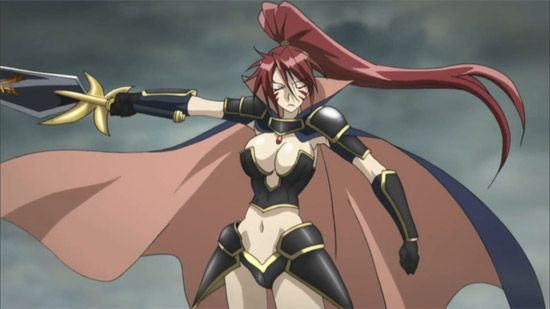


She's in a rush to gather from rival (female) daimyo pieces of a legendary armor that would grant her the absolute power on the country. In the end Nobunaga would learn that there's more to ruling than authority and violence, and nothing can be done without the support of her loved ones and the people. I must say that despite the simplicistic portrayal, I got to enjoy this version of Nobunaga and this series.
Besides Nobunaga's huge boobs, my favourite feature about this series was the yuri vibe: the only male character is a dog, that acts like a mascotte, and the relationships are all woman-on-woman, which is a nice twist, as these kind of productions usually offer a harem storyline.
It's still an ecchi series destined to men, though, so don't expect any deep character development or analysis, also if some bits are really surprising and intriguing (Mitsuhide, who has a huge crush on Nobunaga, decided to betray her out of jealousy for Hideyoshi, who easily turned into one of Nobunaga's favourite vassals despite her clumsiness).
Exactly the next year, on April 2012, we got another Sengoku anime series following the same recipe, "Sengoku Collection".
This was based on a social card videogame of 2010, focusing on collecting the cards portraying the Sengoku daimyo in their very moe version.
The anime adaptation followed the same pattern: but here is the daimyo themselves who have to collect each other's "treasures" so to manage to get back in their time.
PLOT TWIST! Here in fact, is the Sengoku girls who are scattered around modern-day Japan, and they have to find a way to survive the unknown era besides trying to get back in their age.
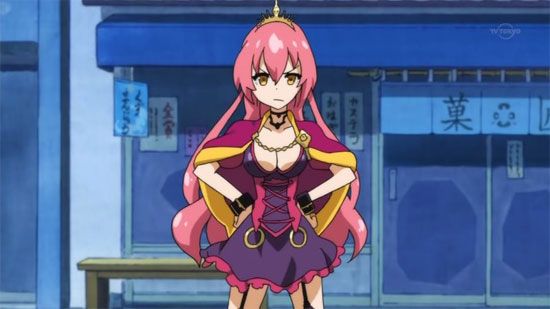
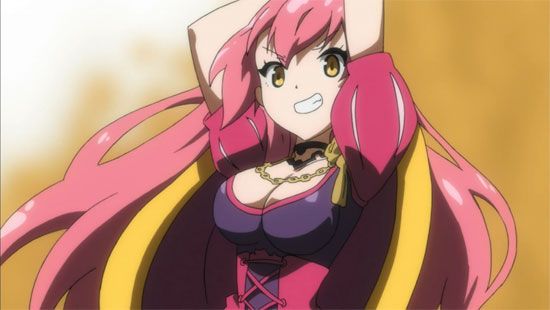
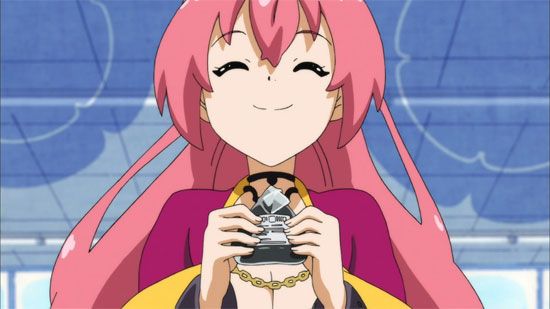
Characterized as your standard tsundere loli, she's immediately linked to your useless protagonist guy, doomed to become her love interest.
I couldn't watch this series in its entirety, so my review may be lacking but-- NO, just NO.
Despite my disgust, anime producers didn't give up on the idea, so on the July of the same year, "Oda Nobuna no Yabou" was aired on the Japanese TV.
This time the original source for this anime is a blatantly ecchi light novel nonetheless. Originally published on the magazine GA Bunko on 2009, it was followed by a manga adaptation on magazine Comp Ace, a monthly release focusing on bishojo games and relative manga adaptations.
The story is an obvious tribute to the videogame "Nobunaga no Yabou" (the strategy game "Nobunaga's Ambition"). The protagonist of this story, Sagara Yoshiharu, in fact, is a huge fan and an expert of the videogame.
When he found himself in the Sengoku era and he's forced to take the place of Hideyoshi, who died to protect him, his knowledge of the videogame would prove useful to protect his new lord, the pretty yet ambitious Oda Nobuna, from her fated destiny.
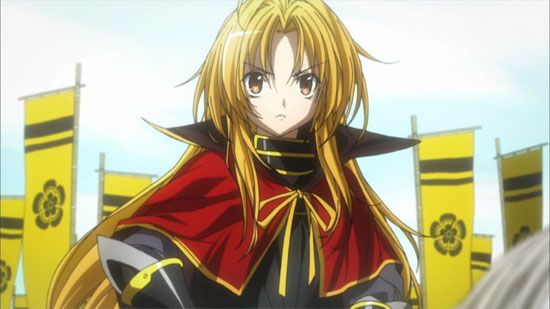

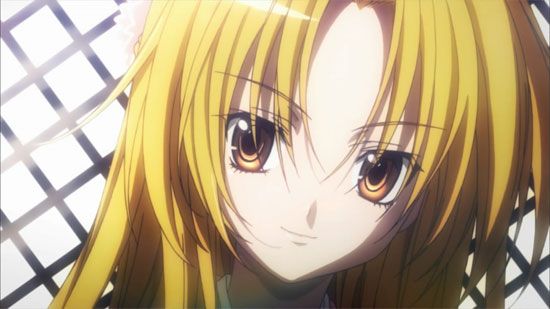
This is another series that I dropped almost instantly because I can't really stand that harem crap anymore, but I must admit that it offered an intriguing plot and an enjoyable portrait of Nobunaga, despite the obvious limits of such a rendition.
In the end Nobuna is nothing but a cute girl who longs for love and peace, but is constricted by her clan's needs and a sense of justice that forces her to pursue war as an attempt to reach for peace to cover a role that doesn't really suit her... The general impression was quite loathful due to the overbearing ecchi crap anyway.
Now we have to make a semantic jump and say goodbye to the series featuring the genderswitch element to focus on the genuine stories focusing on the Time Travel theme.
I have to make an exception and talk about "Nobunaga no Chef", a manga that started its serialization on March 2011, but was granted of a drama TV rendition instead of an anime version on 2013.
I can't really review this excellent series as at the moment I'm stuck to the first volumes of the manga due to a sinful lack of scanlations (and I'm not very motivated to start watching the TV drama, as I heard of some changes from the original story that I didn't like at all), but a mention is due.
The main theme of this series is cooking and Sengoku cuisine, but there's also the theme of the time traveller, as the protagonist, Ken, is a chef from the modern age, who's also affected by amnesia, just to make things more interesting.
The idea of investigating through the Sengoku era "through its stomach" is a bit forced indeed, but still original and fun.
The Nobunaga of this series is quite decent and accurate, definitely a proper rendition of our Demon Lord, and despite the peculiarity of the plot one can't really negate its historical accuracy and value.
We're familiar to the idea of tea ceremony as a diplomatic mean, it's not so weird to assume that food had pretty much a similar mean at the time (and in modern ages too!).
Next is one of the most recent productions on the theme, "Nobunaga Concerto".
Based on a manga that started its serialization in 2009, the anime was recently aired on the summer of the current year. The series was then converted to the TV drama format on the autumn of this same year again, making one assume that it was quite well-received by the audience.
This time the protagonist, clueless student Saburo, is not just sent to the Sengoku Era, but he's also forced to take the place of the real Nobunaga, a weak-willed, sensitive and cultured daimyo who can't deal with the duties of his clan, and shoved your typical good-for-nothing modern boy in his place.
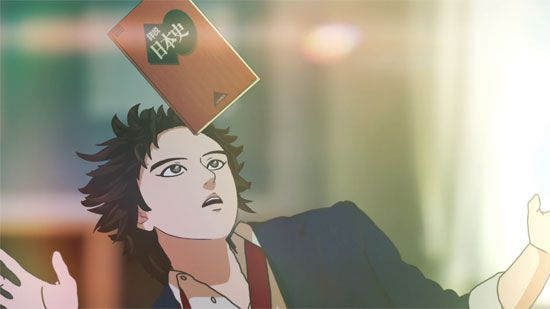
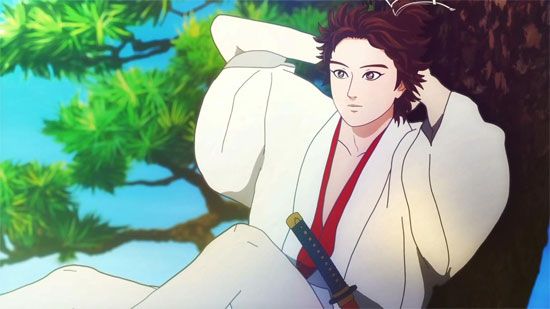
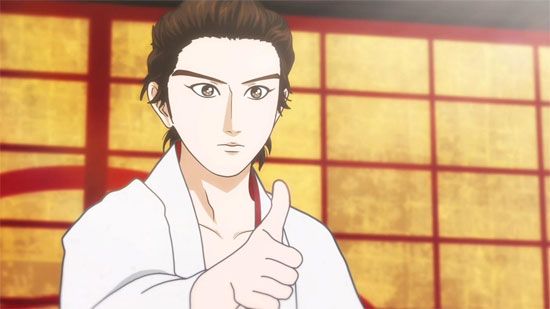
I found quite fun the fact that Saburo knows nothing of Japanese history, his least favourite subject at school-- So his every action in the Sengoku era is pretty much "genuine" as he doesn't really have any idea of the "details". This series also supports the idea of Hideyoshi as a "villain" entering Nobunaga's service to disrupt his clan (he's a shinobi from Imagawa clan), but developing mixed feelings about him as the story progresses...
Another variation on the theme that is probably worth a mention is a manga spin-off of the above mentioned "Nobunaga no Yabou" videogame, "Nobunaga no Yabou ~Rin-ne~".
Sponsored and supervised by KOEI, it started its serialization in 2013, and is currently available in English for free on the website of Manga Samurai Style.
In this version, Nobunaga himself is the time traveller, and he's given the chance to face his life all over again after the facts of Honnoji in an attempt to "fix things".
Besides the wonderful artworks, I found the idea quite intriguing, as it's a sharp reference to the very role of the videogamer: as the player is given another (and another, another--) chance in the game to conquer Japan, the same goes for Nobunaga.
It's interesting to note that here Nobunaga is aware of "how things went", so he tried his best to fix things, trying to take different "routes" to avoid the tragedies that pinpointed his life, but ending up with facing new kind of troubles... Just as a modern gamer, rather than a warlord.
As a Nobunaga fan and a shrewd anime consumer, this interpretation of Nobunaga, expecially the insistence of the time travel factor, the idea that Nobunaga needed "a help" of some kind from the people of modern times, leaves me a bit wonderous.
It makes me wonder about the modern Japaneses, rather than the old ones.
Truth is, modern people still make a point of taking inspiration from "the old sources" as a genuine and wise treasure of sort to grow up culturally and intellectually, think of how seriously stuff like "The Art of War" of Sun Zu or "The Book of Five Rings" of Musashi are taken, yet we still have the arrogance to assume that people from the old times could learn something "from us", who are pretty much their degeneration.
I wouldn't say that I'm against progress, I'm just implying that I find quite improbable that Nobunaga could get any help from any of us, as the exact opposite is quite obvious too.
Thinking of how things are going in "Rinne"-- I'd say that just a totally brand new level of trouble would arise.
--So, that's the reason behind the genderswitch, maybe? Is it a way "to estrange" themselves from the "real deal", and turn it into a mere matter of a "damsel in distress"..? If possible, that's even more cowardly.
Eh? Nobunaga no Chef's scanlations got pretty far. We're at volume 7 out of 11 XD That's pretty good, all things considered... LOL. But Nobunaga no Chef is licensed in my country, so if the new volume shows up in my country I will tell you what happens, if you want! (or you can find the raw and ask your friend to help? :P)
ReplyDeleteI really like Rin-ne Nobunaga no Yabou too! The idea of Nobu trying to fix things... I mean, speculations about "What if Nobunaga hadn't died" is all over the place, so I'm excited to see where this goes :3
- I find the title itself to be interesting. "Rin-ne" is the Japanese reading of the Samsara, the Buddhist reincarnation cycle. Also with the appearance of Yaobikuni the nun... I wonder if the manga will have religious/Buddhism themes later on...
LOLOL Oda Nobuna no Yabou... I was afraid you would say you liked it because I thought it was horrible XD
Pretty far..? They are stuck to the first two chapters of volume 8 since August 2014 :/ !
DeleteI hope that the new season of the TV drama would give more energy to the scanlator-- As I'm expecting for it the same fate of my beloved "Sengoku" =_=
As I was looking for info on "Rinne" I stumbled on the complete title of the comic: "輪廻転将", romanized as "Rinne no Tenshou".
"Tensho" means someting like "The Ever-changing General", it does give a sense of "Samsara" ^^ But I don't know if the story will develop any Buddhist theme besides these references-- Probably it's just a ploy to suggest us the metaphor of the "gamer" in a fancy way ^_^;
"Nobuna" was horrifying-- But despite its idiocy it had some interesting bits. For example, I enjoyed the bits where the protagonist mentioned the game and the strategical issues. "Sengoku Collection", on the other hand, was just OBSCENE. 100% pure stupidity.
Don't they feel ashamed to portray historical characters so important for their culture like that?!